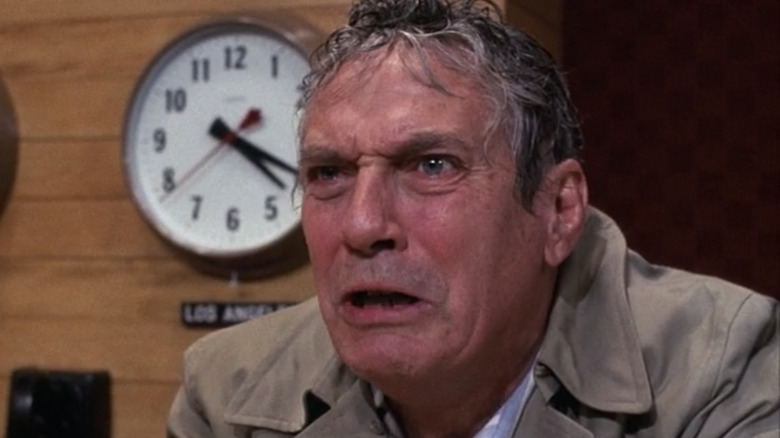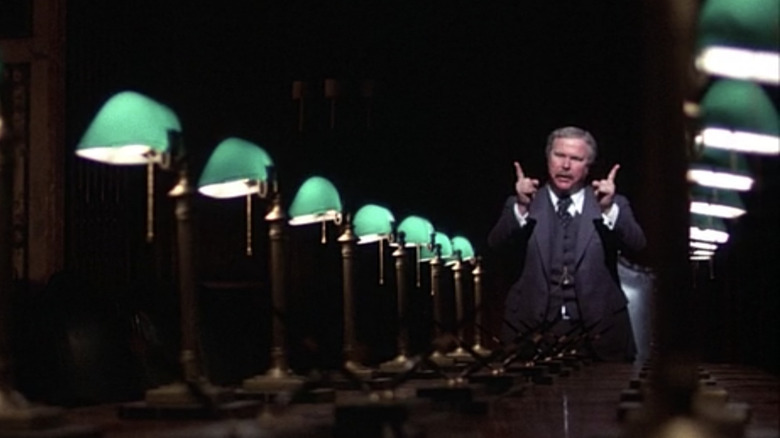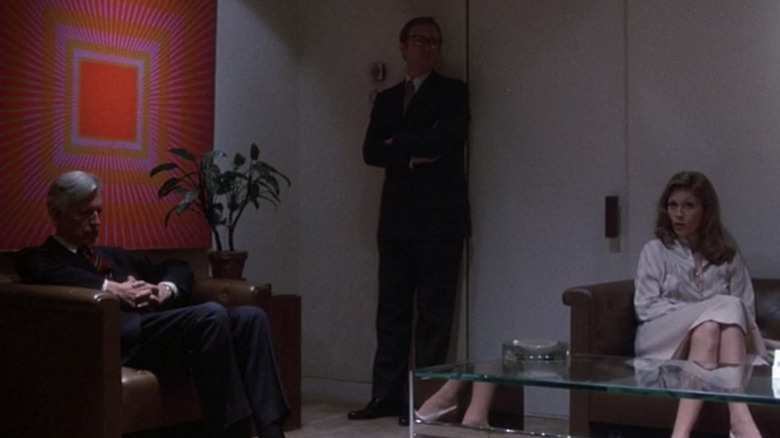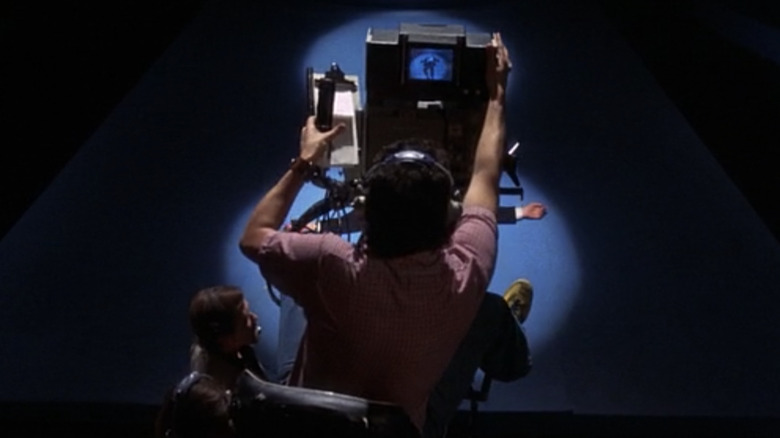Network Ending Explained: Money Is God
We may receive a commission on purchases made from links.
I don't think I have to tell you that the state of news, particularly television news, is not in a great place. Sensationalism rules most of what television news is. Entertainment and drama have become more important than reporting facts with objectivity. Every story is framed in a way to outrage a particular portion of the political spectrum, rather than just saying how it is. Fox News basically runs as propaganda machine for the political right. The goal is to get as many eyes on these networks to rake in as much profit from their advertisers as possible. Yes, I agree it is incredibly depressing.
What was once seen as an outrageous farce back in 1976 is now just a stark portrait of reality. I'm talking about "Network," the television news satire from director Sidney Lumet and screenwriter Paddy Chayefsky. "I'm as mad as hell, and I'm not going to take it anymore," may be the primal scream that has entered the lexicon, but it is the ending that rings more true today than ever. It is a depressing reminder of how badly money has corrupted our society and institutions to the point where human life is less precious than profits.
There Are No Nations. There Are No Peoples.
"Network" concerns the exploitation of the mentally unwell news anchor Howard Beale (Peter Finch). His on-air tirades that stir the public into a frenzy are seized upon by head programmer Diana Christensen (Faye Dunaway), transforming his news program into a spectacle to showcase the "mad prophet of the airwaves." That is until he exposes that the network's parent company will be purchased by a Saudi conglomerate, which creates a gigantic public backlash and threatens the pocketbooks of the executives. Beale is then called into meet chairman Arthur Jensen (Ned Beatty), who explains to him the truth about how the world works as if he too were a prophet.
"You are an old man who thinks in terms of nations and peoples. There are no nations. There are no peoples. There are no Russians. There are no Arabs. There are no third worlds. There is no West. There is only one holistic system of systems, one vast and immane, interwoven, interacting, multivariate, multinational dominion of dollars. Petro-dollars, electro-dollars, multi-dollars, reichmarks, rins, rubles, pounds, and shekels. It is the international system of currency which determines the totality of life on this planet. That is the natural order of things today. That is the atomic and subatomic and galactic structure of things today! And you have meddled with the primal forces of nature, and you will atone!"
When Beale begins to spout this depressing truth on his program, the viewership turns on him, not interested in hearing how the public has no true power. As the ratings continue to plummet, Diana and the rest of the network executives determine the only way to solve this problem is to assassinate Beale live on-air. Not only do the executives get to solve the issue of having Beale on the air, but they also will get a good ratings bump by having that kind of bloodshed on their network.
A Matter of Life and Death
For corporate entities, the value of a person lies solely in how much money that person can make for it. The person could be an incredibly hurtful to other people and society as a whole, like a certain podcast host who uses racial slurs and spreads vast misinformation that could jeopardize people's health, but if that person brings in a good chunk of change for the company, it will happily stand behind that person. Once that profit motive is no longer there, they are dispensable.
As Beatty's Arthur Jensen puts it, "The world is a college of corporations," and if they are the ones controlling everything, that means they also get to play god. They believe they have the power and capacity to determine who lives and who dies. Beale stops making them money. Therefore, he no longer needs to live. Forget the fact that he is a person. Killing him is the smart business move. The discussion on whether or not he should die takes place in an antiseptic office, bathed solely in artificial light. The executives all speak without passion, remorse, or really any kind of traceable emotion. Beale's fate is determined through the same cold calculation that they would use to determine their Thursday night lineup. After all, they are god, and this is just business. Nothing personal.
The Boredom-Killing Business
Director Sidney Lumet and screenwriter Paddy Chayefsky both came up through television. Lumet, in "The Making of Network" Blu-ray featurette, says, "No, it's not a satire. It's sheer reportage." Often times when talking about "Network," people say Chayefsky saw the future. However, this screenplay was borne out of the news that a large multinational corporation was buying ABC, and Chayefsky put all his feelings about that, plus a million other things, on paper. He saw how money dominated everything in the moment. In terms of the extremity, he was ahead of the game, but the core of his fears were already in place. Money could get a lousy sitcom to stay on the air, a left wing anarchist group arguing about distribution costs in a contract negotiation, and end someone's life.
With so much of "Network" becoming sadly true, the film is still told through a comedic lens. The monologues that go on for pages and pages in the screenplay are delightfully nutty. Dunaway's Diana only being able to have an orgasm by frantically talking about ratings during sex is still boldly hilarious. Even the scene where they discuss Howard Beale's murder sinks straight into gallows humor. The difference between its release and now is that you used to talk about "Network" while thinking about how crazy it is, and all you can do now is feel a pit in your stomach. It truly is "sheer reportage," and you should be mad as hell about it.



